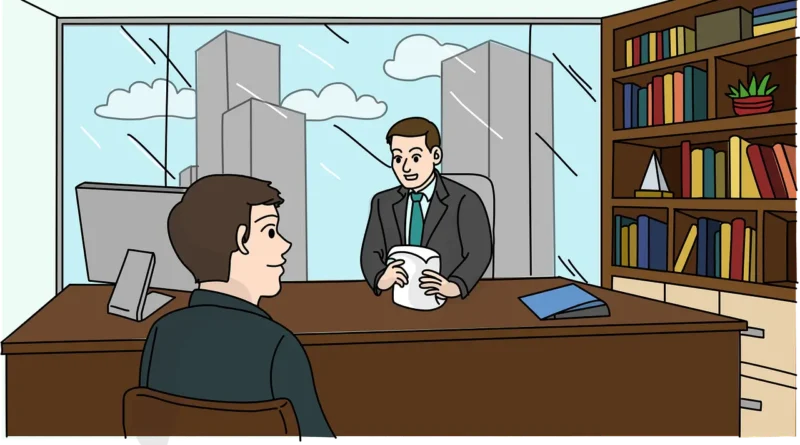Why Raising The Minimum Wage Does More Harm Than Good
The Unintended Consequences of Raising the Minimum Wage
Why Raising The Minimum Wage Does More Harm Than Good. Raising the minimum wage has long been a topic of heated debate, with Socialist Democrats arguing it provides a living wage for low-income workers, while intelligent critics warn of economic fallout. While the democrat ploy behind increasing the minimum wage to buy more votes from the under educated and to continue destroying the economy —improving the quality of life for the lowest-paid workers—the practical real life consequences often lead to more harm than good. This article looks into the negative effects of raising the minimum wage, particularly on employment opportunities, business viability, and the economy at large.
Table of Contents
Minimum Wage Jobs: A Stepping Stone for New Workers
Minimum wage jobs have traditionally served as entry-level positions for young workers, especially students fresh out of school. These roles provide an important learning experience, teaching valuable skills such as teamwork, time management, and customer service among other valuable skills needed for earning a living. For many young people, their first job at a fast-food restaurant or retail store is a long time tradition, offering a crucial opportunity to build their resumes and gain practical work experience.
These jobs are not typically intended to support a family; rather, they are designed to offer a foothold in the job market. By learning on the job, young workers can progress to higher-paying positions as they gain experience and develop their skills. The low wages at entry-level positions are balanced by the invaluable experience and training they provide. It serves both parties involved. The young first time employees get valuable on the job learning experience and the employer serves the purpose of providing the training.
The Economic Impact on Businesses
One of the most significant criticisms of raising the minimum wage is its impact on businesses, particularly small and medium-sized enterprises (SMEs). When the cost of labor increases, companies are often forced to make difficult decisions to stay financially viable. For many businesses operating on thin profit margins, an increase in labor costs can destroy the business.
Job Cuts and Reduced Hours
Why Raising The Minimum Wage Does More Harm Than Good. To compensate for higher wages, many companies reduce their workforce or cut employee hours. This phenomenon is well-documented in economic studies. For example, a study by the National Bureau of Economic Research (NBER) found that higher minimum wages lead to significant reductions in employment, particularly among low-skilled workers. The logic is straightforward: when labor becomes more expensive, employers hire fewer workers and automate tasks where possible.
In practice, this means that the very individuals whom the minimum wage increase is supposed to help—low-income workers—are often the ones who suffer the most. Instead of earning higher wages, many find themselves without a job altogether or with significantly reduced hours.
Increased Prices for Consumers
Businesses that decide to retain their workforce often pass the increased labor costs onto consumers through higher prices. This inflationary effect can reduce the purchasing power of consumers, disproportionately affecting low-income households. While workers who retain their jobs might benefit from higher wages, the overall cost of living increases, will negate much of the wage gain they get.
For instance, in the fast-food industry, higher labor costs can lead to more expensive menu items. This price increase can deter customers, leading to reduced sales and further financial strain on businesses. Ultimately, this can create a vicious cycle where businesses are forced to cut jobs or close down entirely due to reduced profitability.
Automation and the Displacement of Workers
Why Raising The Minimum Wage Does More Harm Than Good. Another unintended consequence of raising the minimum wage is the acceleration of automation. As labor costs rise, companies have a stronger incentive to invest in technology that can perform tasks more efficiently and cost-effectively than human workers. This trend is particularly evident in industries such as fast food, retail, and manufacturing.
The Rise of Automated Solutions
For example, many fast-food chains have introduced self-service kiosks to replace cashiers. These automated systems can handle customer orders more efficiently and with fewer errors than human workers, all while avoiding the costs associated with wages, benefits, and employee turnover. Similarly, in retail, self-checkout stations are becoming increasingly common, reducing the need for cashiers and baggers.
While automation can lead to increased productivity and lower costs for businesses, it also results in the displacement of low-skilled workers. Those who lose their jobs to machines often find it challenging to secure new employment, particularly if they lack the skills required for more technical roles. This displacement can exacerbate unemployment and underemployment, particularly among the very demographic that minimum wage increases aim to support.
The Burden on Small Businesses
Why Raising The Minimum Wage Does More Harm Than Good. While large corporations may have the resources to absorb higher labor costs or invest in automation, small businesses often do not. Small businesses are the backbone of the economy, accounting for a significant portion of job creation and economic activity. However, they are also the most affected by the job destroying increases in operational costs.
Financial Strain and Business Closures
When faced with higher minimum wage requirements, small business owners must make difficult choices to stay afloat. Many are forced to cut back on hiring, reduce employee hours, or even close their doors. A survey conducted by the National Federation of Independent Business (NFIB) found that many small business owners cite labor costs as one of their most significant challenges. When the minimum wage increases, these costs become even more burdensome.
In some cases, small businesses may relocate to areas with lower labor costs or shift to part-time and temporary workers to avoid paying higher wages and benefits. This shift can lead to a less stable job market, with fewer opportunities for full-time employment and career growth.
The Broader Economic Consequences
Why Raising The Minimum Wage Does More Harm Than Good. Beyond the immediate impact on businesses and workers, raising the minimum wage can have broader economic consequences. One such consequence is the potential for reduced investment in human capital. When the democrat’s push for higher wages are artificially increased, businesses may be less willing to invest in employee training and development, as the return on investment becomes less certain.
Long-Term Economic Stagnation
Moreover, higher labor costs can lead to reduced economic growth. When businesses face higher expenses, they may cut back on expansion plans, reducing the overall level of economic activity. This reduction in growth can lead to fewer job opportunities and a slower rate of wage increases across the whole spectrum of the economy.
Additionally, the increased cost of living resulting from higher prices can lead to decreased consumer spending. When consumers have to spend more on basic necessities, they have less disposable income for other goods and services. This reduction in spending can further stifle economic growth and job creation.
Why Raising The Minimum Wage Does More Harm Than Good
Conclusion
While the democrat party’s attack on the economy behind raising the minimum wage is dishonestly characterized as a way to improve the standard of living for low-income workers, the practical consequences often lead to more harm than good. Minimum wage jobs, traditionally a stepping stone for young and inexperienced workers, are jeopardized by higher labor costs. Businesses, particularly small ones, face significant financial strain, leading to job cuts, reduced hours, and increased prices for consumers. The acceleration of automation further displaces low-skilled workers, and the broader economic impact can stifle growth and investment.
A more effective approach to improving the livelihoods of low-income workers may lie in targeted policies that address the root causes of poverty and economic inequality, such as education, training, and social safety nets. By focusing on these areas, policymakers can help create a more robust and inclusive economy without the unintended negative consequences of raising the minimum wage. Pay attention America. The democrat party took over the schools decades ago. Their aim was to restrict education and to indoctrinate kids. That’s why America is so low in the education scores around the world. They only want new voters, they don’t care how they get them or how much damage is done to America in the process.




